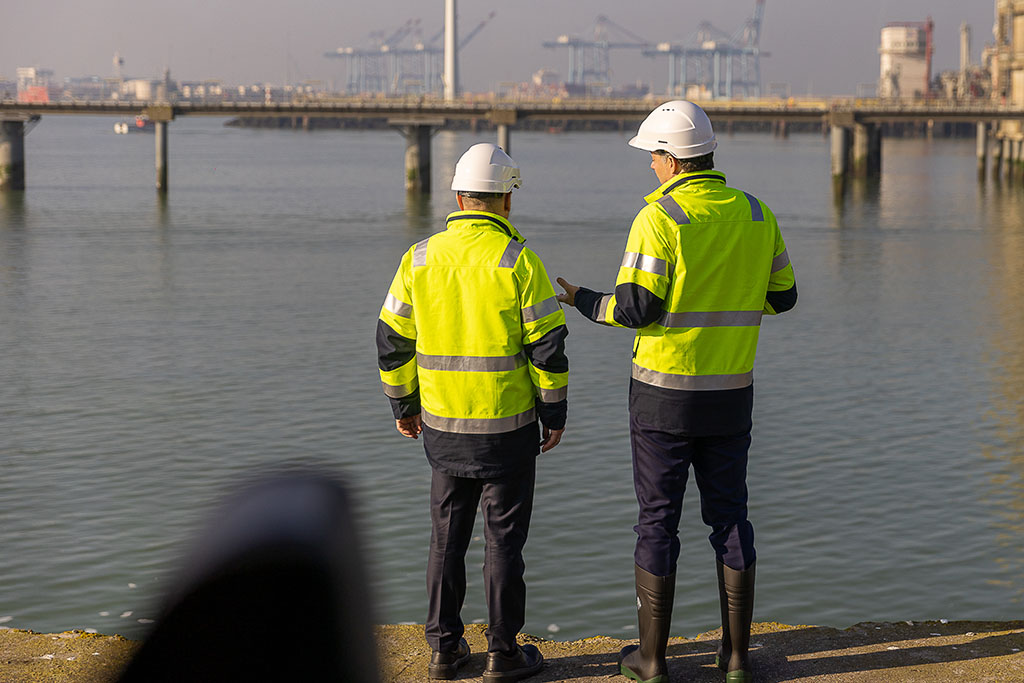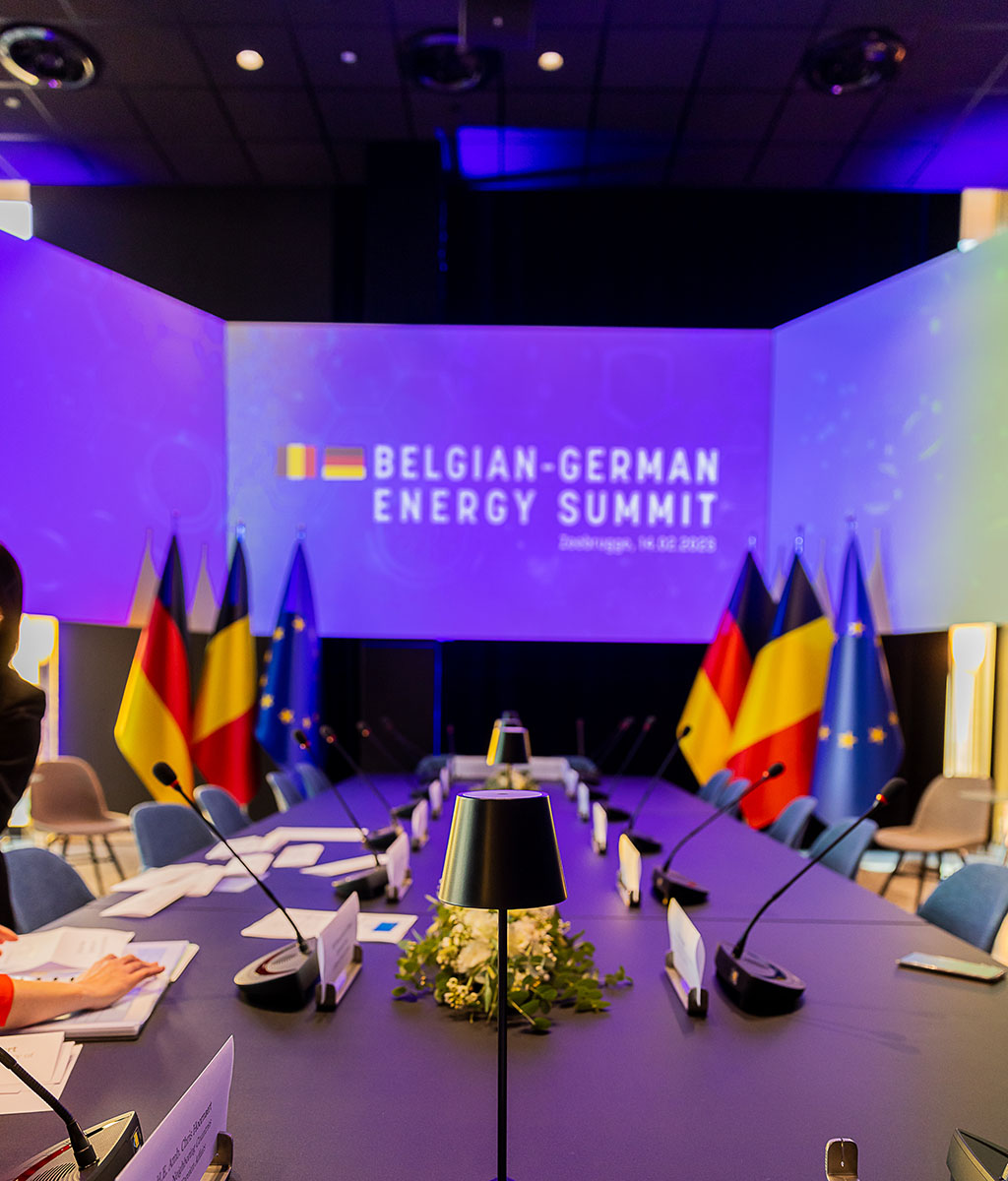At a first Belgium-Germany energy summit in February 2023, Prime Minister Alexander De Croo and Chancellor Olaf Scholz, the political leaders of Belgium and Germany respectively, signed an agreement to further strengthen energy cooperation.
The location of the summit, Zeebrugge, was no accident, as since the start of the war in Ukraine, the port has become a crucial link in the supply of natural gas from Norway, and liquified natural gas (LNG) from the United States and Qatar.
While energy cooperation between Belgium and Germany is not new, the war in Ukraine and the urgent need for energy transition have further accelerated collaboration efforts in this domain. With ambitious renewable and sustainability targets, both Belgium and Germany want to mainstream circularity and become carbon neutral economies in support of industrial leadership and innovation.

Open for greener, more sustainable energy
1. Hydrogen
As both Belgium and Germany already have ambitious hydrogen strategies in place, they have agreed to open and connect their hydrogen infrastructures by 2028 to further enhance the lasting integration of their industrial clusters. This development of the hydrogen market will be further facilitated by a new pipeline network, and certification and market platform schemes.
2. Gas transit
The port of Zeebrugge already plays a crucial role in the supply of gas to Germany. In fact, after Norway, Belgium is the country’s second most important (energy transit) partner. As Belgium is open to further growth in this area, the two partners have agreed to double transit capacity to Germany, particularly as the LNG partnership is a strong foundation for further cooperation on hydrogen, which could use the same infrastructure in the future.
3. Renewable energy
Belgium is also open to work more closely with Germany in the field of renewable energy. Currently, this bilateral cooperation is mainly via the North Sea, but projects are also foreseen in the Baltic.
4. Electrification
Already since 2020, the Belgian and German electricity networks have been directly connected to each other via the Alegro interconnector. To guarantee the growing electrification, particularly from North Sea production, it was agreed to investigate the construction of a second interconnector.
The first summit, but not the last
Both heads of government and accompanying ministers confirmed they are open to the idea of meeting on a regular basis to discuss more sustainable energy cooperation, and, where necessary, take initiatives to maximise their energy interdependence.


